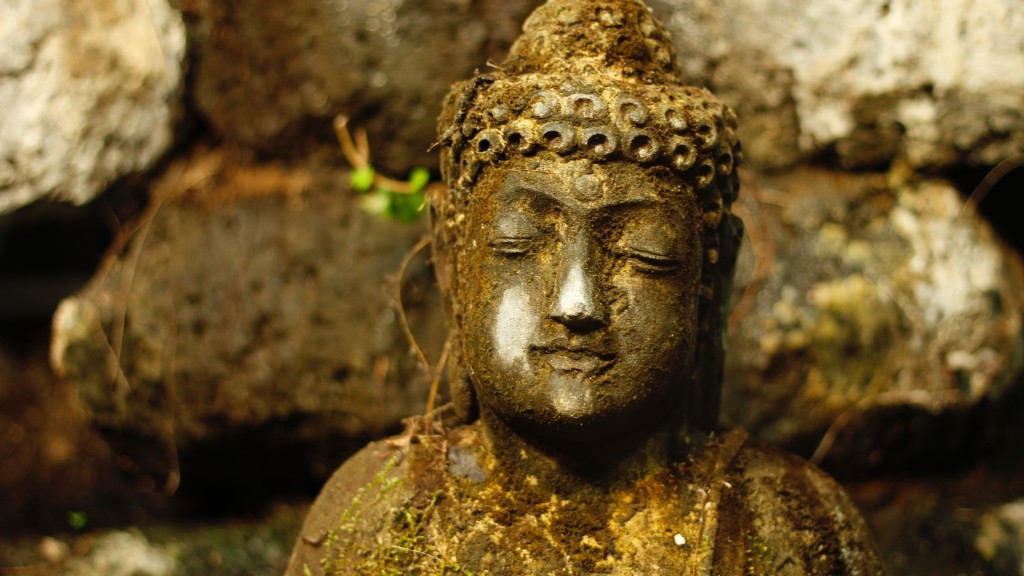Introduction
Hinduism is one of the oldest belief systems and one of the most widely practiced religions in the world. It is based on powerful traditions and has a deep spiritual and philosophical foundation. With its vast array of philosophies, rituals, and spiritual practices, Hinduism provides a flexible and open-ended approach to faith and understanding. It encourages people to find their own paths and insight, rather than to rigidly adhere to a single set of rules or an unchanging faith. Here we take a look at some of the main practices of Hinduism.
Gurus
Hindus often hold the teachings and example of gurus, or spiritual guides, in high esteem. A guru is not necessarily a single person or leader, but can be a group or lineage of teachers that offer guidance and mentorship. Hindus look to these teachers as examples of how to live life with moral values, joy, and authenticity. The guru also offers teachings and wisdom to aid in a person’s spiritual development.
Devotion
Devotion, or Bhakti, is one of the central practices of Hinduism. It is seen as the path to self-realization and truth, and it allows the adherent to merge with ultimate reality. Devotion entails turning one’s thoughts and energy towards something higher than oneself, whether it be a deity, a principle, or an ancestor. Hindus believe that devotion can bring about spiritual and material blessings.
Vedas
Vedas are the oldest and most sacred scriptures in Hinduism. They are composed of hymns, mantras, and other texts. Hindus revere the Vedas and use them as the basis for their rituals and practices. The Vedas include detailed instructions on how to perform ceremonies, such as marriages, funerals, and other special events. They also contain advice on how to live in harmony with nature, and how to gain insight into one’s soul.
Meditation
Meditation is an essential practice in Hinduism. It helps the devotee to go within and to find inner peace and harmony. Hindus use meditation to gain understanding of the spiritual realm and to become more aware of themselves and their environment.
Sacrifice
Sacrifice is another important practice in Hinduism. It can take many forms, ranging from giving up material possessions and earthly pleasures to sacrificing one’s own life. Sacrificing one’s own life is seen as the ultimate act of devotion to a higher purpose, and can bring about spiritual growth and insight.
Karma
Karma is a key concept in Hinduism. It refers to the law of cause and effect, and states that whatever actions one takes will have consequences in the future. It is believed that one’s current circumstances are the result of past actions, and that future actions will bring about more consequences. Hindus view karma as being central to improving one’s spiritual wellbeing, as it encourages people to take responsibility for their actions and to be more aware of their thoughts and deeds.
Spectacles
The spectacle of Hinduism is an integral part of the faith. Hindu rituals and ceremonies are marked by colorful, vibrant scenes and sounds. Hindus observe various festivals, such as Diwali, Holi, and Navratri, that each bring their own unique activities. Hindus also go on pilgrimages to sacred places, such as the great temples of India, which offer a way to deepen one’s spiritual connection to the divine.
Dietary Customs
Dietary customs play a role in Hinduism. Many Hindus follow vegetarian or vegan diets in order to respect the sanctity of all life. Hindus also commonly practice fasting, which is seen as a way to purify the body, cleanse the mind, and free the soul.
Philosophy
Hindu philosophy is based on the idea that the ultimate truth, or Brahman, is beyond the physical realm. It is believed that truth is beyond words, thoughts, and images, and can only be experienced directly. This philosophy encourages people to look inward and to aim for spiritual development and enlightenment.
Yoga
Yoga is an integral practice in Hinduism. It allows the practitioner to go within and connect with the inner self. Yoga combines physical postures and breathing exercises with meditation in order to promote mental and physical wellbeing, and to help one to become more conscious and aware.
Astrology
Hindus often turn to Astrology as a way to gain insight into their destiny and purpose. By studying the planets, stars, and other celestial bodies, Hindus believe they can better understand their position in the universe and their place in life. Astrology is used as a means of understanding one’s potential, refining one’s character, and gaining a deeper understanding of the cosmos.
Spiritual Practices
Spiritual practices are at the heart of Hinduism. These practices often take the form of rituals, such as listening to sacred music and chanting mantras, or engaging in meditation and yoga. Hindus often seek guidance from religious texts and spiritual teachers in order to further develop their spiritual understanding and insight.
Life Events
The major life events of Hindus are often marked by rituals and ceremonies that are designed to bring order, joy, and prosperity to the individual and their family. These events, ranging from birth to marriage to death, are seen as important moments for reflecting on one’s place in life and in the world, and for recognizing the spiritual significance of the event.
Caste System
The caste system is an often controversial aspect of Hinduism. It is a social hierarchy in which people are divided into groups based on their background and occupation. This system has been in place for thousands of years, and, while it has shifted and changed over the years, it still has a major influence on the culture and society of India.


